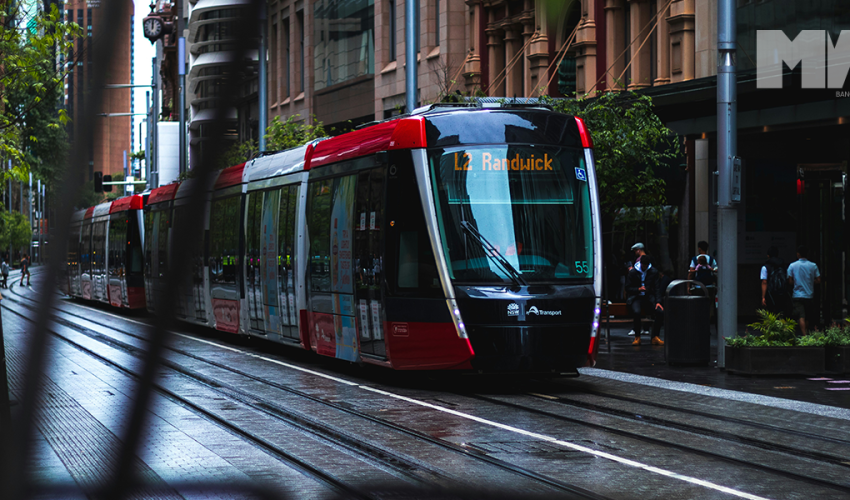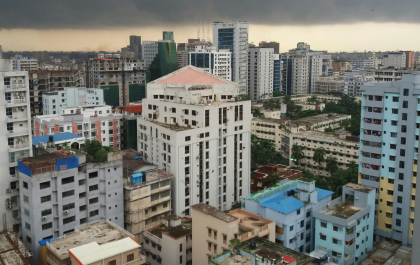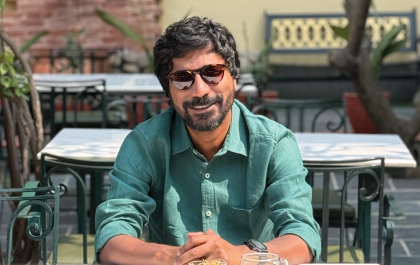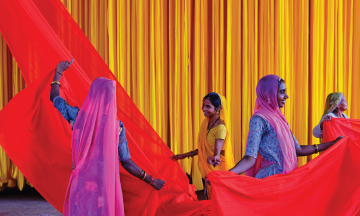Abak Hussain
Dealing with the weather is always such a pain. We are light-years from being able to actually control it even a little bit, and not too far advanced from dancing to make it rain or offering sacrifices to the sun god for a good harvest. Rising temperatures, freak weather events, and natural disasters always arrive as a reminder of how precariously civilization is perched on elegant structures, some of them tangible, some of them cultural, and how a tidal wave, a flash flood, or an unexpected onslaught of rain could wash it all away.
I am being a bit hyperbolic perhaps, but our desire to tame and conquer the whimsies of the natural world – does it not at the same time bring out the best in us, as well as the worst? To find the most ambitious, complex, and sublime examples of human thought, look no further than city planning. But the field of city planning is also where you get the most extreme examples of greed, megalomania, uniformity stamping out individuality. If you are asked to close your eyes and imagine what might be called a “futuristic city,” with good reason the word dystopia will come to mind. We like to start off by imagining the obvious things, a place where everything is automated and manual labor has been all but eliminated, a place where the streets are safe and hunger and poverty have been banished to museums, a place where all the trains run on time and the garbage is always taken away.
Maybe a place like this would be immune to flash floods and waterlogging, rainwater would be perfectly harvested, the oppressive glare of the sun would be turned into sustainable energy. Maybe artificial clouds or large-scale humidity controllers could keep things nice and pleasant always, at a predictable rhythm, while air purifying systems as pervasive as free Wi-Fi could keep the AQI hovering near zero.
But of course, someone would be controlling the switches, and to keep a machine like this working, the people also need to be on-board with the plan, with no one getting out of line. Who would run this system, with what unseen interests? And what to do with the dissenters? What kind of sordid deep state would have their hands on the control panel of such a controllable, hyper-efficient future city? What would the implications be for human rights, arts and culture, free speech, the pursuit of happiness? Or maybe citizens will be happy with the trade-off – say, pervasive government surveillance is OK as long as it can keep me safe in the streets? Maybe Big Brother knows best?
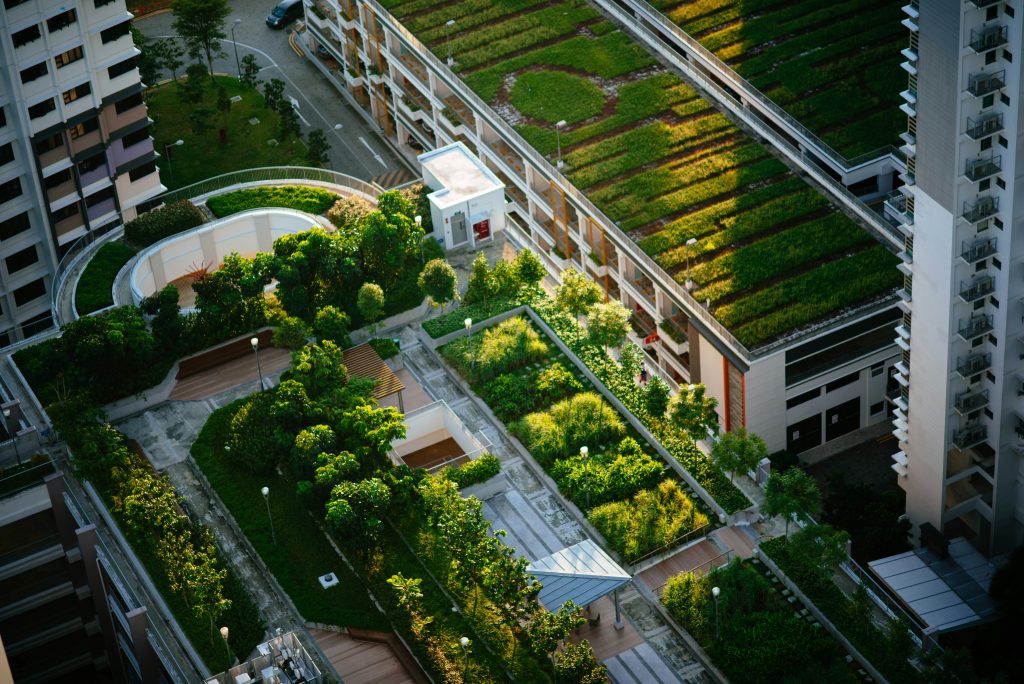
But back to the weather for a bit – maybe a good climate sometimes backfires, with people and its planners taking it for granted. Here in Bangladesh, sure, in this scorching hot April we are complaining of the heat like we do every year, and even as I write this I am wishing it were cooler, but still, it stops me in my tracks to actually think about what the natural world has (had!) blessed us with. A warm-to-hot climate and plenty of sunshine all year round, breathtakingly beautiful torrential rains to break up the oppressive heat, and short, refreshing winters with just the right amount of cold where dreary winters never drag. The topography has blessed us too, with arable flat land and a multitude of rivers.
In short, a geographical jackpot, but what did we do with it? We failed catastrophically to take care of it or prepare for the rain, instead got drunk on unsustainable construction and megaprojects, and are now paying the price with the most polluted, most unliveable capital city in the world. Our rains should have been a blessing from the heavens but even those are now a mixed bag due to widespread waterlogging – again, a failure on the level of city planning.
But then you have cities like Las Vegas and Dubai rising out of the desert. There is nothing organic about their formation, they were a product of a ton of money, vision, and confidence. But as I write this, Dubai is experiencing rainfall unlike anything anyone has ever seen before. This has almost collapsed the normally smooth operations of this Alpha global city, with traffic coming to a halt, schools being closed, and flights getting cancelled. But if the Dubai admin is smart about it, they will probably learn from this and update their drainage system. Your city may have been planned for a certain type of climate, but climate change is making some of that go haywire – so now at the top of every city’s list needs to be adaptation and sustainability. If cities are planned in a way that incremental changes are possible without overhauling the core structure, then they won’t be caught with their pants down. In other words, freak weather events cannot be pushed to the back of the agenda anymore, they are that X-factor that must be front and center.
Most of the world now lives in cities, and so it is only natural to fantasize about what a futuristic city could possibly be. Especially if you are sick and tired of your own city, you may be susceptible to this private little game of, shall we call it “fantasy city planning?” And if your pockets are as deep as your imagination, why limit it to fantasy? You can move full speed ahead with plans of your own megaproject, a city within a city, the way singer Akon has done with “Akon City” in Senegal, which he envisions as a “real-life Wakanda,” with its own cryptocurrency (Akoin). So far, this charming and whimsical idea does not show signs of being anything more than an overambitious conceit, with actual work dragging its feet. But even if Akon City fails, it will be a nice little story for him to tell his grandchildren.
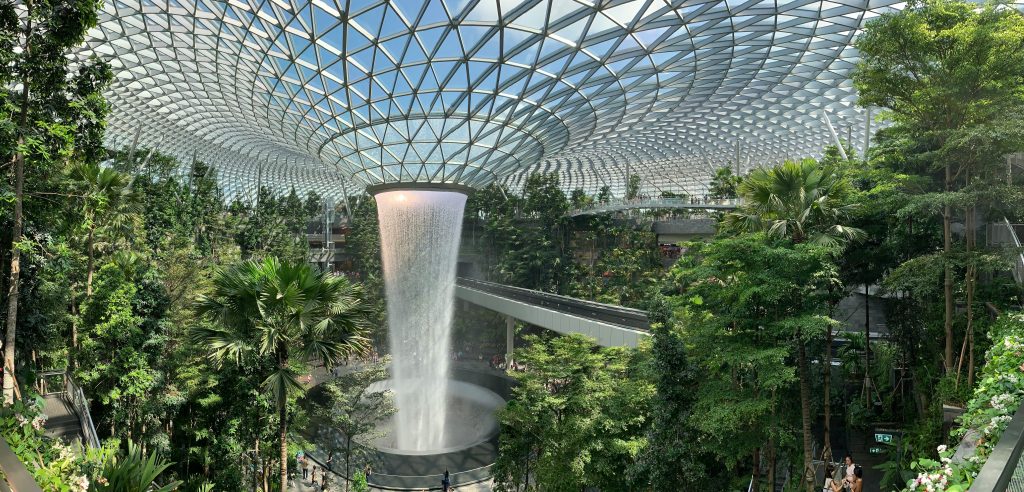
On the other hand, Crown Prince bin Salman of Saudi Arabia has a number of megaprojects in the pipeline, some of them big enough to be called cities within cities, like a ginormous cubic structure in Riyadh which will contain all the things you could want, or a “linear smart city” called The Line consisting of two mirrored buildings stretching from the Red Sea to Tabuk (170km), with open space between the two buildings. Since the plan’s inception, these insane projections for The Line have been scaled back significantly. The vision for this “city” to have no cars, no emissions, and to be powered entirely by renewable energy are admirable, but what does it matter if all the sustainability is for show, and the bankrollers preaching sustainability with their right hand are burning fossil fuels like no tomorrow with their left?
And all said and done, will a perfectly planned utopia in Saudi Arabia funded by oil money be a good place to live in? Do we need to worry about other factors, like democracy, culture, human rights, a free press – little details like that? One thing at a time, I suppose …
Abak Hussain is Contributing Editor to MW Bangladesh.




